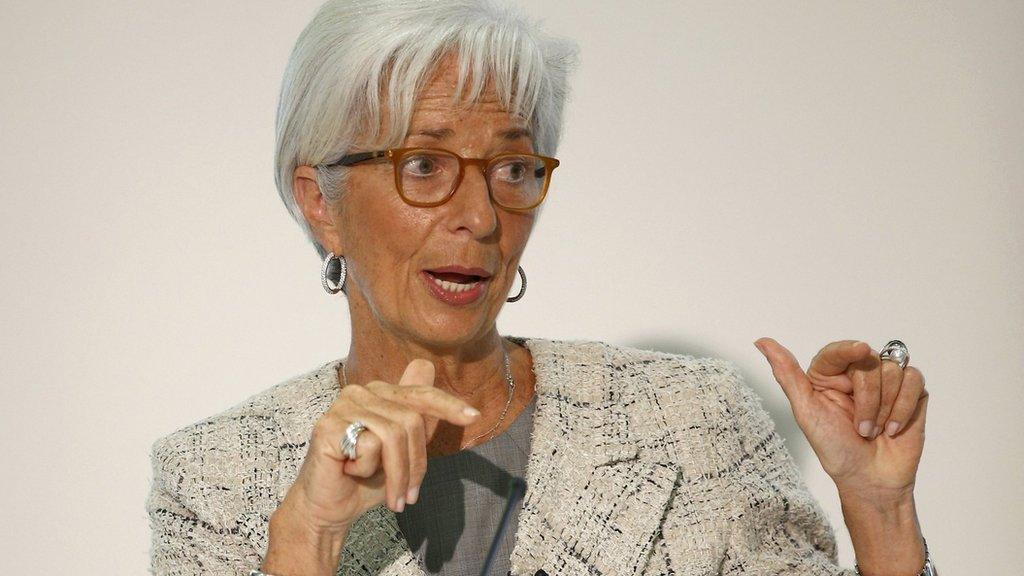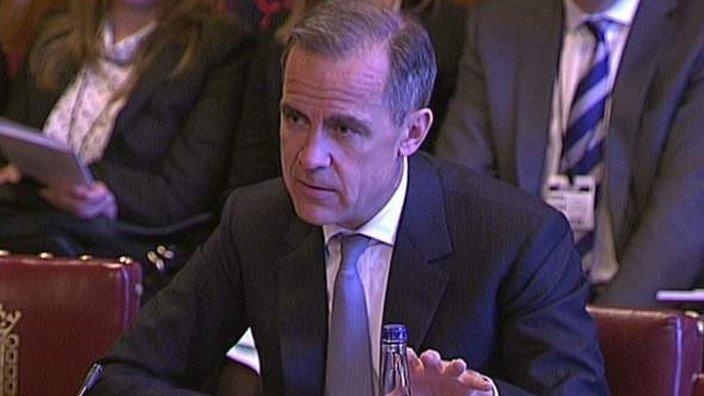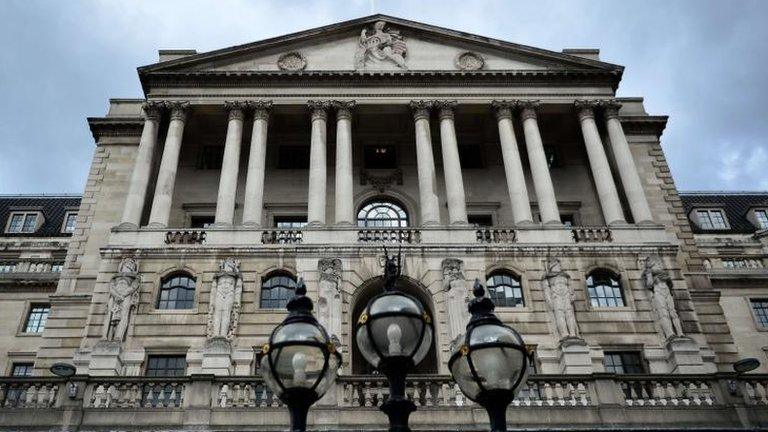Mark Carney defends Brexit recession warning
- Published
Mark Carney: "The issues around the referendum are much much broader than the issues that concern the Bank of England"
Bank of England governor Mark Carney has defended his intervention in the debate over the UK's membership of the European Union.
Mr Carney warned on Thursday that a UK vote to leave could cause a recession - sparking calls for him to resign.
But he told the Andrew Marr show he was independent of politics and was not suggesting how people should vote.
Mr Carney said the Bank's role was to "identify risks, not to cross your fingers and hope risks would go away".
Voters will be asked whether they want the country to stay in or leave the European Union on in the referendum on 23 June.
Mr Carney said his comments about a possible recession, made when he appeared before the Treasury Select Committee, were about being "straight and transparent" with the British people.
He rejected suggestions he had breached the Bank's impartiality mandate, and denied claims the remarks had emphasised only the downside of leaving the EU.
"Our central forecast is for Remain - we always take government policy, that's the standard approach of the Bank of England - but we go into great detail about the risks around that," he told Marr.
'The key point'
Mr Carney denied claims that he had overstepped the mark by making statements on EU membership.
"Absolutely not," the governor said. The Bank should not "bend to political pressure from any side".
He said it would have been wrong to wait until after the vote, "and then say 'Oh, by the way this is what we thought at the time'.
"We also have a responsibility to explain risk and then take steps, because by explaining what we would do to mitigate them we reduce them.
"That is the key point - ignoring a risk is not to reduce it," he said.
However, former cabinet minister Iain Duncan Smith, a Leave campaigner, repeated criticism that Mr Carney had breached his obligations on impartiality by emphasising only the Leave risks.
Mr Duncan Smith told Andrew Neil's Sunday Politics programme: "If you're going to be impartial, if you're going to be fair, then you damn well better say something about what the alternative case is, and the threats of remaining are very clear."
Iain Duncan Smith: "I think the governor has strayed now into an expression of simple, personal prediction"
He said he "wouldn't expect" a major financial institution to back the Leave campaign "because they all wanted to protect the status quo".
Mr Carney's comments last week about the risks of recession were seized on by the Remain camp, with Chancellor George Osborne saying the UK had had a "clear and unequivocal warning" from the Bank's Monetary Policy Committee as well as the Bank's governor about the risks of leaving the EU.
'Dangerous intervention'
However, former UK chancellor Lord Lamont warned that institutions such as the Bank were becoming politicised.
"A governor should be careful that he doesn't cause a crisis," he said.
Jacob Rees Mogg, a Tory MP and Treasury Select Committee member, called on Mr Carney to be sacked, saying he had acted irresponsibly.
And on the Marr show, ahead of Mr Carney's appearance, Conservative minister and Leave campaigner Andrea Leadsom said the governor had made "an incredibly dangerous intervention" in the EU debate.
She said the Bank's only job was to ensure financial stability, adding: "They're not there to provoke financial instability and that's what they've done."
She predicted Mr Carney would end up "significantly regretting getting involved in politics".
- Published13 May 2016

- Published12 May 2016
- Published19 April 2016

- Published14 April 2016
